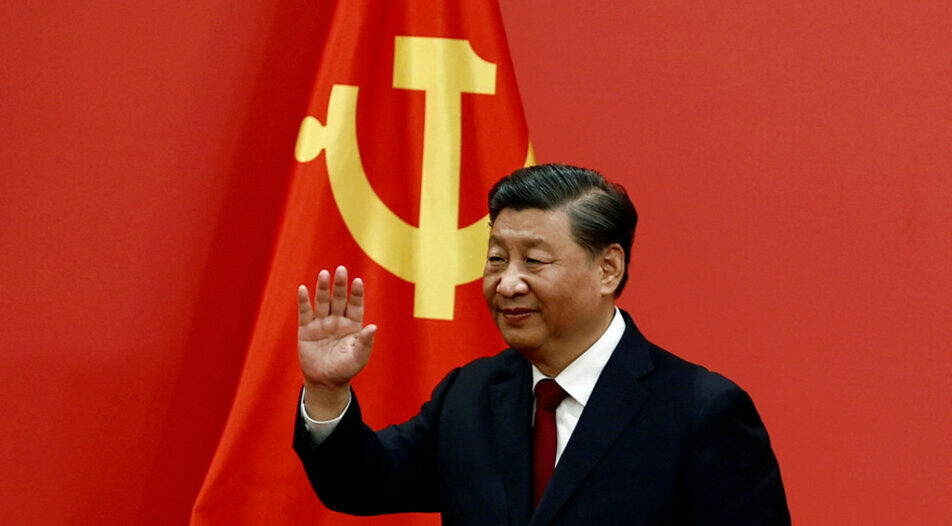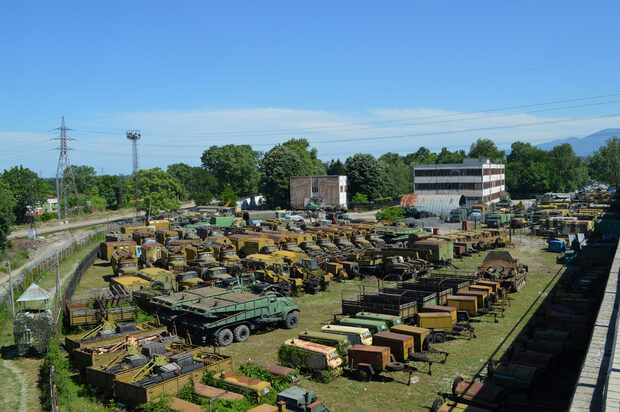The subject of non-Western infiltration in the Balkans has focused solely on Russia's efforts, especially since the invasion of Ukraine a year ago. However, the Kremlin is not the only authoritarian power with interests in the region. For years, Beijing has carried out its own agenda, which appears much more benevolent than Moscow's, but still carries significant risks.
A joint policy paper compiled by Friedrich Naumann Foundation's Southeast Europe's office and the Sofia Security Forum sheds light on China's inroads in the region. The report, which has been developed by a network of national experts, focuses on 8 countries - from Slovenia in the West to Bulgaria in the East. The editors say it aims to identify key patterns of Beijing's appeal in the region in the areas of economic cooperation, political and cultural ties, as well as governance practice and standards. So, what's the verdict for Bulgaria?
China in Bulgaria: pure pragmatism
Chinese penetration in Bulgaria is more limited and less successful compared to other countries in the region and especially the big outlier - Serbia. Relations between Sofia and Beijing are described as "pragmatic," predominantly economic, without significant breakthroughs. China's allure is described as "largely ineffective in making Bulgarian state institutions develop a policy framework for cooperation to pursue tangible results."
China has been more successful in forging creating links with academic and non-governmental organizations, as well as in establishing links to municipalities. Both types of institutions appear unable to resist the sheer size of Chinese capacity - or at least the promises accompanying it.
Latecomer to the economy
Chinese actors have generally been at a disadvantage in terms of entering key sectors of the Bulgarian economy like infrastructure and energy, where there have long been better positioned players, such as Russian energy companies and established local road construction companies, respectively. The report cites the failure of the China Communications Construction Company to outbid its Bulgarian competitors in the tender for the construction of the Shipka pass tunnel and a section of the Sofia-Plovdiv railway. It claims that main streams of finance have gone to agriculture and especially on land acquisition for the production of animal feed for export.
On the other hand, the majority Chinese investments in the country, announced with fanfare over the years - like the China Machinery Engineering Corporation's intention to participate in a joint development project in the port of Varna, or ZTE's plan to participate in a smart city project - have quietly disappeared from discussion. In fact, Beijing does not figure among the top 20 investors in the country and has only made it as the 9-10th biggest trade partner of Sofia in recent years.
A non-topic in public discourse
Unlike Russia, which always sparks polemics on both sides when cited in public discourse, China simply does not feature, the report assesses. While the People's Republic of China (PRC) invests in media content in Bulgaria - like in regular supplements for 24 Chasa's weekly issue and in other marginal newspapers - as a whole the media coverage of China remains "marginal, uncritical, and with little in-depth context," the report concludes.
Apparently, the lack of coverage is the best advertisement PRC can get, because quoted surveys show a growing number view the country positively (from 31% in 2016 to 50% in 2022), while trust in the EU and the USA dwindles. At the same time, the authors note that the positive popular attitudes do not translate to elite approval of the PRC's social and political norms - no high-level political interviewees "publicly appreciate the Chinese model of development and the need for strong authoritarian power mixed with capitalism."
Limited gains in academia and at local level
While there is little synergy between Chinese and Bulgarian elites' interest at national level, the situation is different down the chain, where the PRC's size attracts municipalities and universities. According to the report, 19 municipalities out of 265 have cooperation agreements with Chinese counterparts, and there is ongoing cooperation with mayors and regional governors.
The situation is similar in academia - while no clear framework of cooperation between Chinese and Bulgarian institutions exists, more than 140 cooperation agreements have been signed between universities in the two countries, with cooperation manifesting in student exchanges and joint research.
Significantly, some state institutions have welcomed cooperation with China - the Ministry of Interior is cited for accepting Chinese donations, while the Ministry of Justice has approved the extradition of a Chinese citizen suspected of corruption to the PRC. It has also attempted to deport Uyghurs despite possible threats to their lives.
The report ends by urging the creation of a "China strategy" in Bulgaria that would set a vision and practical framework for bilateral relations and not allow the PRC to use its leverage over the country indiscriminately. The full report can be read here.
The subject of non-Western infiltration in the Balkans has focused solely on Russia's efforts, especially since the invasion of Ukraine a year ago. However, the Kremlin is not the only authoritarian power with interests in the region. For years, Beijing has carried out its own agenda, which appears much more benevolent than Moscow's, but still carries significant risks.
A joint policy paper compiled by Friedrich Naumann Foundation's Southeast Europe's office and the Sofia Security Forum sheds light on China's inroads in the region. The report, which has been developed by a network of national experts, focuses on 8 countries - from Slovenia in the West to Bulgaria in the East. The editors say it aims to identify key patterns of Beijing's appeal in the region in the areas of economic cooperation, political and cultural ties, as well as governance practice and standards. So, what's the verdict for Bulgaria?












